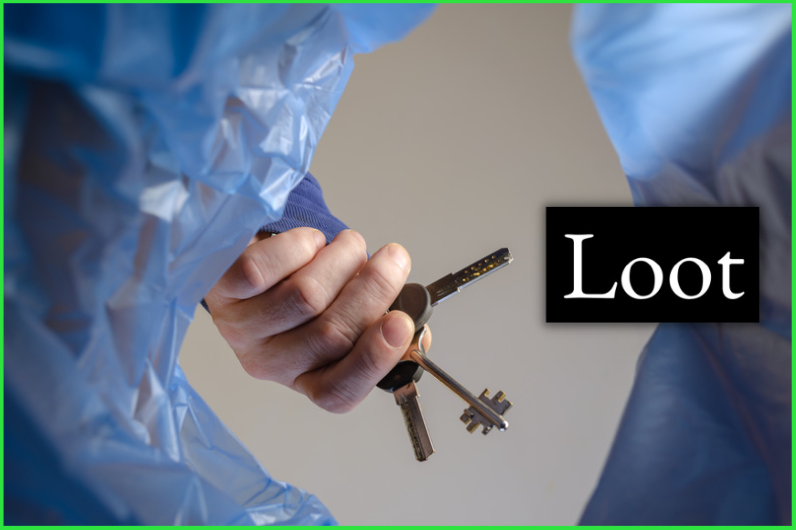The Founder of LOOT Wants to Throw Away the Keys to the Contract
The founder of Loot wants to throw out his most magical item: the smart contract keys that govern the nascent game. “I worry that the contract owner is and always will be the de facto authority (‘the church’) on Loot, and that this will ultimately harm the project,” its creator, Dom Hofmann, best known for…
By: Brady Dale • Loading...
NFTs & Web3
The founder of Loot wants to throw out his most magical item: the smart contract keys that govern the nascent game.
“I worry that the contract owner is and always will be the de facto authority (‘the church’) on Loot, and that this will ultimately harm the project,” its creator, Dom Hofmann, best known for making the social video app Vine, wrote on the Loot governance forum.
A vote is underway to burn the contract keys that govern the NFTs known as LOOT.
Loot is a hugely popular NFT project where each NFT minted generates a small list of item names, like those found in a swords-and-sorcery themed game. Loot launched August 27 and immediately captured the imagination of the NFT community. Loot NFTs (or “bags”) trade for a minimum of 6 ETH right now, according to OpenSea.
More important than the value, however, may be the fact that the project is an interesting experiment around coordinating people to make something together. If it works, it could be a bellwether for many projects to come.
Anyone with a LOOT can cast a vote on whether or not to burn the keys, and right now the vote looks very likely to pass. So far, of all 8000 LOOT, 2000 LOOT have voted for burning the keys and 26 have voted against. Voting ends Sept. 12 at noon ET.
True Powers
According to Hofmann’s post introducing the proposal, there aren’t really serious powers the Loot contract keys still hold. For example, he doesn’t say the keys enable him to create more LOOT.
The most powerful thing he can do with the keys is mint the unminted LOOT. There are 221 LOOT remain unclaimed. Hofmann notes that he would like to set aside 21 of them for himself and then let the community decide what to do with the rest.
His larger concern seems to be that as long as there is a contract owner that person will have a hold on the project, which goes against its intent.
He writes: “For better or for worse, as long as there is a contract owner, the perceived powers of the contract owner likely have some legitimacy. The owner’s primary soft power is the ability to signal what is or isn’t canonical or approved, and to require some degree of psychological buy-in.”
Comments on the proposal are overwhelmingly positive, in line with the votes.
But the treasury?
If the keys are burned, the most significant cost to the Loot community appears to be the fact that it will no longer have the option to set a royalty fee for sales of LOOT to fund a treasury to support game development.
But, as one user noted, there are other options to bring in funds. “If we really wanted a treasury to kick-start development, we can either use AGLD, or we can authorize you to sell those remaining 200 bags with funds going directly into said treasury before you burn the keys.”
AGLD (or Adventure Gold) is a derivative project that created an ERC-20 token that was airdropped to all LOOT owners.
The idea of Loot is that Hofmann has created one aspect of a game: a list of in-game items. Now it’s up to LOOT holders and fans to create the rest of the game. As the website explains: “Loot is the unfiltered, uncensorable building block for stories, experiences, games and more, in the hands of the community, at no cost. Loot pursues complete decentralization from day one.”
En route to decentralization, by burning the contract key Hofmann would be in some way throwing away the blockchain equivalent of a scepter or a crown.
Advertisement
Get the best of The Defiant directly in your inbox 💌
Know what matters in Web3 with The Defiant Daily newsletter, every weekday
90k+ investors informed every day. Unsubscribe anytime.